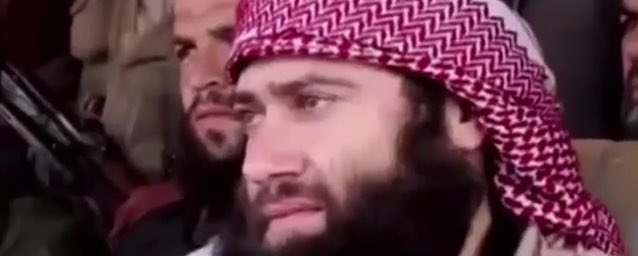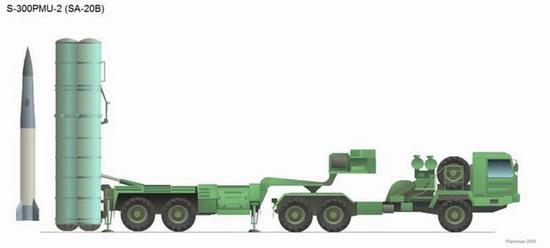Vice video concerning the re-taking of Ramadi, Iraq, pictured above
https://www.youtube.com/watch?v=yL_iChdMLOI
Hizbollah chief Hassan
Nasrallah said Sunday: “Revenge for the death of Samir Quntar is on the way…
The orders have been given and execution is in the hands of resistance fighters
on the ground… We are not afraid of consequences and threats. We shall not let
the blood of our Jihadi fighters and brothers to be spilled anywhere in the
world.” Nasrallah went on to say: “The Israelis are worried and rightly so -
those on the borders [soldiers] and those inside the country… They decided that
eliminating such an important target is worth the adventure and the
sacrifice…They thought that al-Quntar is not that important to Hizbollah.”
The Hizbollah leader
maintained that Prime Minister Binyamin Netanyahu thought he could take
advantage of the Syrian war to win international recognition of the Israeli
annexation of the Golan. “As we commemorate al-Quntar, we must revive the
spirit of sacrifice because that is a key condition of the rise of the people,
the persistence of resistance and the creation of the future."
Nasrallah called on the Palestinians to stop waiting for pro-Western Arab nations to take action, or for American operations in concert with Arab armies.
Nasrallah called on the Palestinians to stop waiting for pro-Western Arab nations to take action, or for American operations in concert with Arab armies.

The Russian air strike
that Friday, Dec. 25, killed Zahran
Aloush, founder of the most powerful Syrian rebel group Jaysh al-Islam and his
deputy, gave President Bashar Assad a big break in the Syrian war,
thanks to his powerful backer, Vladimir Putin.
This grave loss will
accelerate the breakup of Syrian terrorist strongholds in and around Damascus.
It will also hasten the evacuation under a UN-sponsored ceasefire of at
least 2,000 rebels from the Damascus region. Less noticed, was the UN plan to remove at the same time
several thousands ISIS fighters from the Syrian capital and transport them to
their Syrian headquarters. The latter project has not been trumpeted for good
reason: It implies UN recognition of ISIS as a party in the Syria war.
For nearly five years, the war seesawed back and forth, with neither the Syrian army nor the insurgents gaining the upper hand for long, even after Tehran threw its Lebanese proxy, Hizbollah, into the fray to bolster Assad’s army.
For nearly five years, the war seesawed back and forth, with neither the Syrian army nor the insurgents gaining the upper hand for long, even after Tehran threw its Lebanese proxy, Hizbollah, into the fray to bolster Assad’s army.
Interventions by the US,
Saudi Arabia, Qatar, the UAE, Jordan and Israel were too trifling and hesitant
to tilt the balance in favor of the anti-Assad insurgent militias. Weapons
supplies were inferior and tardy and kept the terrorists heavily outgunned by
the Syrian army’s tanks, helicopters and fighter jets, and helpless
against the Iranian-made barrel bombs dropped by the Syrian air force.
The Obama administration was the architect of this uneven support strategy, going so far as to constrain the terrorists’ other foreign backers against giving them the resources for carrying the day, aside from local victories.
The Obama administration was the architect of this uneven support strategy, going so far as to constrain the terrorists’ other foreign backers against giving them the resources for carrying the day, aside from local victories.
This strategy had the
effect of prolonging the vicious conflict – until it was cut short by two
events:
1. In the summer of 2014, the Islamic State of Iraq and the Levant arrived in full force to capture the northern Iraqi city of Mosul, scattering seven Iraqi armed divisions to the four winds, and grabbing their sophisticated American weapons, along with their arsenals, that were crammed with good American tanks, armored personnel carriers, and an assortment of surface, antitank and antiair missiles. Part of this booty was diverted to ISIS Syrian headquarters in Raqqa.
1. In the summer of 2014, the Islamic State of Iraq and the Levant arrived in full force to capture the northern Iraqi city of Mosul, scattering seven Iraqi armed divisions to the four winds, and grabbing their sophisticated American weapons, along with their arsenals, that were crammed with good American tanks, armored personnel carriers, and an assortment of surface, antitank and antiair missiles. Part of this booty was diverted to ISIS Syrian headquarters in Raqqa.
2. A year later, in
late September 2015, President Putin embarked on a massive buildup of
Russian military strength in Syria - notably, his air and missile forces - for
direct intervention in the war.
In contrast
to President Obama, who sought to keep his hand on the conflict by a
complicated system of dribbling arms to select Syrian rebel groups, Putin went
all out with massive military and strategic backing to assure the Syrian ruler
and his Iranian ally of victory.
The Russian strategy is
now becoming evident: It is to drive the rebels out of the areas they
have captured around the main cities of Latakia, Aleppo, Idlib, Homs, Hama and
the capital, Damascus, giving them two options: join the opposition front
around the table for negotiating an end to the war, or total eradication – even
though Moscow and Washington have yet to agree which of the rebel militias belong
around that table.
According to Moscow’s scale of priorities, the fight against the Islamic State must wait its turn until after Bashar Assad’s authority as president is fully restored and his country returns to his army’s control.
According to Moscow’s scale of priorities, the fight against the Islamic State must wait its turn until after Bashar Assad’s authority as president is fully restored and his country returns to his army’s control.
But on the way to this
objective, Putin has run up against a major impediment: the failure of Iranian,
Shiite militia, Hizbollah and Syrian army ground forces keep up with his
pace. The plan was for Russian air strikes and missiles to clear rebels out of
one area after another and for pro-Assad ground troops to storm in and take
over. But these troops are proving too slow to press the advantage given
them by the Russians.
Last week, the Russians decided to use their intelligence assets to speed things up. They borrowed an Israeli counter-terror tactic to start targeting key rebel chiefs for liquidation.
The death of the Jaysh al-Islamc commander as the result of a Russian airborne rocket strike on Friday was an intelligence feat rather than a military one. Just as Israel last Sunday used its clandestine assets in Damascus to precisely target the Hizbollah-Iranian arch terrorist Samir Quntar at his home in the Jaramana district, so the Russians directed their agents on the ground to mark the secret meeting of Jaysh al-Islam commanders at Marj al-Sultan at the precise moment for taking them down.
This blow to the rebel movement, plus the mass-evacuation of its fighters from the Syrian capital, are major steps towards bringing the Syrian capital back under the control of the Syrian dictator.
Last week, the Russians decided to use their intelligence assets to speed things up. They borrowed an Israeli counter-terror tactic to start targeting key rebel chiefs for liquidation.
The death of the Jaysh al-Islamc commander as the result of a Russian airborne rocket strike on Friday was an intelligence feat rather than a military one. Just as Israel last Sunday used its clandestine assets in Damascus to precisely target the Hizbollah-Iranian arch terrorist Samir Quntar at his home in the Jaramana district, so the Russians directed their agents on the ground to mark the secret meeting of Jaysh al-Islam commanders at Marj al-Sultan at the precise moment for taking them down.
This blow to the rebel movement, plus the mass-evacuation of its fighters from the Syrian capital, are major steps towards bringing the Syrian capital back under the control of the Syrian dictator.

The Syrian terrorist group Jaysh al-Islam Saturday named Issam al-Buwaydani (Abu Humam), pictured above, as new
leader after its founder, Zahroun Alloush, and his deputy were killed by
a Russian air strike Friday.

Delivery of the first regiment of the S-300MU-2
air defense systems, pictured above, to begin in January, followed by the second in August or
September 2016. About 80 Iranian
specialists will receive a four-month training course in their use in early
2016 at the Mozhaisky Military Space Academy in St. Petersburg.

The expected evacuation of
thousands of terrorists from in and around Yarmouk refugee camp in southern
Damascus has been put on hold. The UN envoy for Syria, Staffan de
Mistura, said Saturday that he has set a Jan. 25 target date for the talks for
ending the war in Geneva and developments on the ground "should not be
allowed to derail it."

The Kurdish Syrian
Democratic Forces said their fighters, backed by coalition air strikes, had
seized the Tishrin dam north of the ISIS stronghold of Raqqa. This would
interfere with the jihadists’ supply line across the Euphrates river.

No comments:
Post a Comment